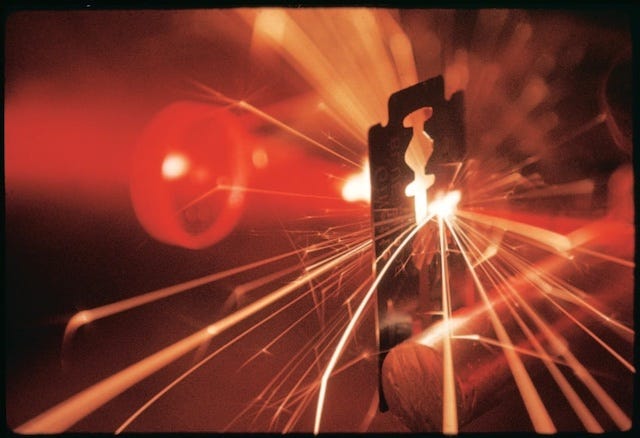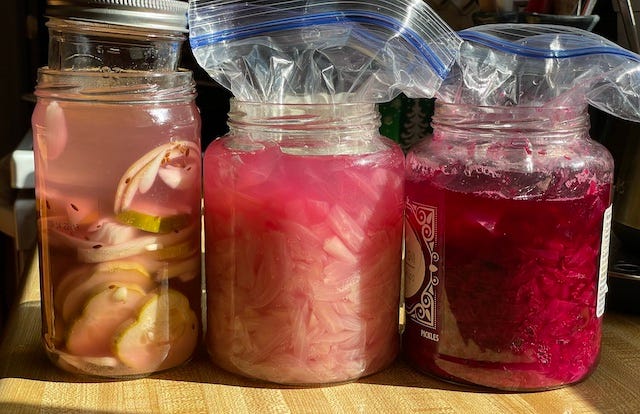Know the four main roles you play in your kid's life
Misjudging this parenting fundamental can wreck the connection with your kid.
Parenting Matters #75
By: Catherine Lynch and Glenn Collins
Dear awesome parent,
We’re taking a little break this week and re-posting an issue we put out last year on a different platform, so most of you missed it. Enjoy!
Ever wonder why your kid gets mad at you when you’re just trying to help? Here’s why: There are four main roles you play in your kid’s life, and you were probably playing the wrong one. Today we’ll set you straight on what they are, what happens when you get it wrong, and how to get it right.
The 4 main roles you play in your kid’s life
You’re a parent. You play lots of roles.
But what role does your kid need you to play right now, at this moment?
One of the most common (and easiest to fix) parenting mix-ups is assuming the wrong role. It’s almost like being in the wrong room. Have you ever accidentally gone in the wrong bathroom? Or gone to the wrong classroom in high school or college? You feel out of place and awkward. You also probably noticed that getting into the right room fixed almost everything.
Here’s the 4 roles:
Caretaker. This is when you’re taking care of their physical and emotional needs, especially when they’re little. Think feeding, bathing, diapers, and soothing.
Coach. They need or want to know how to do something. You have the knowledge and ability to help them. And here’s the important part: They’re receptive to your guidance. It’s equally important to know when you’re not the right person to do the coaching.
Cheerleader. You are on the sidelines, offering support and encouragement. Encouragement is not advice.
Consultant. Your kid comes to you for knowledge, wisdom or advice…. when they want it. Not necessarily when you want to give it to them.
If you take on any of these roles when they don’t need it or want it, your relationship suffers a little. Or a lot.
What happens if you get it wrong?
They feel the bad feelings. Misunderstood. Disrespected. Like you don’t trust them. You might get eye rolls, snarky comments, or the silent treatment. Your relationship takes a hit.
For example:
If you rush in to take care of them (caretaker) and they just wanted you to coach them on how to take care of themselves, they won’t appreciate your help.
If you’re coaching them on something they feel they already know, they won’t feel trusted and that’s painful.
If you’re giving them advice they didn’t ask for (consultant) they’re less likely to tell you what’s going on in their lives in the future.
What happens when you get it right?
They feel the good feelings. Understood. Grateful. Respected. Belonging. Relieved. Connected. Your relationship is strengthened.
On playing the caretaker:
Show respect, empathy, and curiosity. Remember their body belongs to them and their emotions are valid. You’re taking care of their body, mind, and spirit.
Say things like:
Can I help you with that?
That looks like it hurts. Can I put a bandaid on it or would you like to do it yourself?
Oh my. That would hurt my feelings too if it happened to me. Do you need a hug?
On playing the coach:
Make sure that’s what they want. Never assume they want to be told what to do. Even if they wanted coaching yesterday, they might not want it today.
Say things like:
Where should we start?
Which part is the hardest?
Do you want help with that, or are you just venting?
On playing the cheerleader:
Sometimes your kid just needs to know that they’re on the right track. That their effort is noticed and you’re there supporting them.
Say things like:
You’ve got this.
I believe in you.
You’re doing great!
On playing the consultant:
Double check to make sure they really do want to know what you have to say about this. Remember, it’s about what they want, not about what you want to tell them.
Say things like:
Would you like a suggestion?
Are you looking for help?
Do you need a hand with that?
Take action!
Tell your spouse and kids about the 4 different roles.
Identify the different roles you’ve played recently and have open conversations about whether or not you’ve accurately judged which roles your kids need you to play.
If you’re feeling really brave, encourage them to tell you (kindly) when they want you to play a different role than the one you’re playing. For example, “Dad, I just need a cheerleader right now. Not a coach.”
Leave a comment and let us know how it went!
You Never Know What’ll Make an Impression
Catherine grows Snapdragons every year because they’re my favorite flowers. They’re pretty, but objectively I’d say there are prettier: Irises, Roses, and Lilies to name just a few. What makes them special to me is an experience I had as a young child.
When I was perhaps 5 years old we visited my Great Uncle Harry in Rhode Island. His wife was a gardener who grew lots of different flowers. While showing me around his yard we came to the snapdragons.
He knelt down so we were on the same level and demonstrated that if you gently squeeze the sides of the flower, it opens its “jaws” and snaps. Up to this point, I’d been a kid who’d never paid much attention to flowers. But this was COOL! The flower looked like a dragon’s head and you could make the jaws open and close! And just like that, a connection to snapdragons was born. I was now interested in this kind of flower. I’m sure my parents had no idea this would make an impression on me. In fact I don’t think I ever even told them about it.
This just goes to show that you never know what’s going to make an impression on your kids. What experience they have that’ll strike a chord. That will affect them and maybe even set them on a life path.
While I don’t think the snapdragon experience altered my life trajectory, an experience I had when I was 12 did. It was a trip to the Ontario Science Center while on summer vacation. Specifically the laser show.
I’d always been interested in science but watching the laser show captivated me. It was the coolest thing I’d ever seen. I watched it multiple times. They cut through a razor blade with a ruby laser. They popped a balloon with an invisible (infrared) carbon dioxide laser. And they zapped an audience member’s hand (of course I volunteered!) with a high powered, but very short duration, pulsed laser.
This experience changed my life. Science, specifically physics, went from something I’d been interested in, to a passion. I can draw a straight line from this demonstration to my decision to pursue and obtain a degree in physics. Even though I’m not currently working in physics, the subject remains something I’m passionate about. It’s something I spend time reading and thinking about each week.
So here’s our challenge to you: give your kids lots of varied experiences. Introduce them to different opportunities, interactions, ideas, and people. The more you expose them to, the more likely they are to find things that really grab them. The things that become their passions.
Fermenting Veggies
An interest in health and the benefits of live fermented foods has led to our kitchen being filled with jars of vegetables bubbling their way towards being ready to eat. Here we have cucumbers, onions, and purple cabbage coming along nicely.







